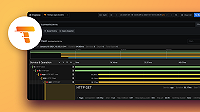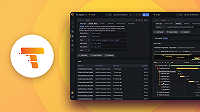This is documentation for the next version of Grafana Tempo documentation. For the latest stable release, go to the latest version.
Set up Tempo
To set up Tempo, you need to:
- Plan your deployment
- Deploy Tempo
- Test your installation
- (Optional) Configure Tempo services
Plan your deployment
How you choose to deploy Tempo depends upon your tracing needs. Tempo has two deployment modes: monolithic or microservices.
Refer to Plan your deployment to determine the best method to deploy Tempo.
Deploy Tempo
Once you have decided the best method, you can deploy and set up Tempo.
Grafana Tempo is available as a pre-compiled binary, OS-specific packaging, and Docker image.
Refer to Deploy Tempo for instructions for deploying using Kubernetes and deploying locally.
Test your installation
Once Tempo is deployed, you can validate Tempo by visualizing traces data:
- Using a test application for a Tempo cluster for the Kubernetes with Tanka setup
- Using a Docker example to test the Linux setup
These visualizations test Kubernetes with Tanka and Linux procedures. They don’t check optional configuration you have enabled.
(Optional) Configure Tempo services
Explore features by learning about available features and configurations.
If you would like to see a simplified, annotated example configuration for Tempo, the Introduction To MLT example repository contains a configuration for a monolithic instance.


